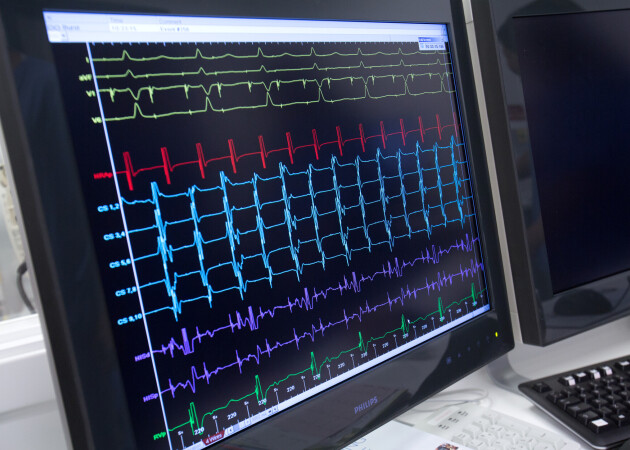Animal research and AI/BMI health predictors: News from Imperial

Here’s a batch of fresh news and announcements from across Imperial.
Best practice in animal research
In a world in which animals are still used in scientific research, Imperial has become a leader in using the 3Rs (replacement, reduction and refinement of the use of animals in research) to challenge whether their use is essential, and ensure an ethical approach if it is.
Following the launch of our 10-year Culture of Care plan in June, we have now developed the Imperial 3RsHub website, funded by the UKRI Enhancing Research Culture.
 This resource centre for the Imperial community and beyond features best practice examples and resources to help students understand the ethics and regulations around animal research. There are also training videos to help staff refine research applications.
This resource centre for the Imperial community and beyond features best practice examples and resources to help students understand the ethics and regulations around animal research. There are also training videos to help staff refine research applications.
Dr Bryn Owen, senior lecturer in endocrinology and Investigative Medicine and Chair of the 3Rs Advisory Group, said: “Our ethical animal research and 3Rs activities are world-leading, and now we have a platform to showcase this excellence. Understanding animal research is essential for an informed public debate, and I would encourage everyone in our community to have a look at our new e-module on the topic, which is hosted on the 3Rs Hub website.”
Global Challenge Lab
 Students from around the world have come together to work on solutions for the UN’s Sustainable Development Goals of creating sustainable cities and effective climate action.
Students from around the world have come together to work on solutions for the UN’s Sustainable Development Goals of creating sustainable cities and effective climate action.
Teams containing students from more than 20 universities took part in the Global Challenge Lab this year – a programme run by Imperial Enterprise Lab, the Technical University of Munich, and Tsinghua University’s x-lab to encourage international collaboration.
The programme brings together students and recent alumni for two weeks of entrepreneurship workshops, guest speakers, and mentoring to help them develop innovative ideas to solve global challenges.
This year’s winning teams were:
- NaviBuddy – an all-in-one interactive AI personal assistant built to assist the visually impaired with seamless navigation.
- Biocentric – a project to transform grape pomace, a winemaking by-product, into medical-grade polymers to reduce single use plastic.
- Green Cloud – an advanced solution for sustainable computer workload routing to cut the carbon footprint of global cloud computing.
Read more about the Global Challenge Lab on the Imperial Enterprise Lab website.
EMBO recognises infectious disease scientist
The European Molecular Biology Organisation (EMBO) has elected Professor Wendy Barclay, Head of the Department of Infectious Disease to its membership. This is in recognition of her outstanding achievements in life science research, including work that has advanced understanding of how infectious disease spreads. Professor Barclay is a virologist who works on respiratory viruses which cause flu and COVID-19. Her research group at Imperial College London studies virus mutations, and how they enable viruses to cross host barriers and cause new pandemics.
The EMBO is an organisation of over 2,000 leading researchers that promotes excellence in the life sciences in Europe and beyond. Its goal is to support talented researchers in all stages of their career and help create an environment where scientists achieve their best work. 
Professor Wendy Barclay said: “I’m honoured to be admitted as an EMBO fellow in its 60th anniversary year and very grateful to all the wonderful people who work with me in my own lab and in the many collaborations we share.”
Lipid metabolism insights
A new study led by Imperial provides new insights into how lipids regulate a protein complex that is crucial in infectious and inflammatory diseases.
The research published in Cell Reports outlines the connection between lipid metabolism and a protein complex called NLRP3 inflammasome. This reveals new avenues for research in inflammatory and metabolic disease, such as inflammatory bowel disease, rheumatoid arthritis, gout and type two diabetes. For example, new treatments could be created to target this pathway and reduce inflammation, which is a common driver of these diseases.
 Dr Paras Anand, Senior Lecturer and lead author in the Department of Infectious of Disease said: “Our groundbreaking research uncovers how the lipid metabolite palmitate regulates the NLRP3 inflammasome, a key player in several infectious and inflammatory diseases. By unveiling this crucial link, our study paves the way for novel therapeutics aimed at mitigating inflammation by targeting lipid metabolism pathways.”
Dr Paras Anand, Senior Lecturer and lead author in the Department of Infectious of Disease said: “Our groundbreaking research uncovers how the lipid metabolite palmitate regulates the NLRP3 inflammasome, a key player in several infectious and inflammatory diseases. By unveiling this crucial link, our study paves the way for novel therapeutics aimed at mitigating inflammation by targeting lipid metabolism pathways.”
AI-enhanced ECGs predict BMI and cardiometabolic risks
Artificial intelligence (AI) can be used to predict body mass index (BMI) from routine electrocardiograms (ECGs) and assess the risk of future cardiometabolic diseases, according to new Imperial research.
The study introduced a novel measure called delta-BMI, which is the difference between AI-predicted BMI and measured BMI. A positive delta-BMI, where AI-predicted BMI is higher than measured BMI, indicates a significantly higher risk of future heart and metabolic diseases, such as hypertension, diabetes and lipid disorders. The AI-ECG model can flag patients who are at high risk of developing these diseases, even if they aren’t classified as obese based on their BMI.
The approach could, in future, lead to better prevention strategies, personalised treatment plans, and improved health outcomes for at-risk patients.
Dr Libor Pastika, co-lead author from Imperial’s National Heart and Lung Institute, said, “Bringing this technology into daily practice could enable doctors to see who is most at risk and intervene earlier where necessary.” Read the full paper in NPJ Digital Medicine.
£28.5m awarded to genomics initiative
Imperial is leading a research cluster as part of a new UK-wide genomics initiative, which was recently awarded £28.5 million by the Medical Research Council (MRC) and the Biotechnology and Biological Sciences Research Council (BBSRC).
The Human Functional Genomics Initiative seeks to explore how genomic variations affect human physiology and their implications in diseases.

Dr Matthew Child from the Department of Life Sciences at Imperial is leading a multi-institutional research cluster which leverages Imperial’s interdisciplinary strength in mathematics, biomedical informatics, digital chemistry, process automation and proteome engineering, and builds new partnerships with Queen Mary University of London and the European Bioinformatic Institute.
“Being able to pull together a diverse portfolio of researchers under the single umbrella of functional genomics is something unique to Imperial,” said Dr Child.
Dr Child’s team will aim to decode the biological impact of genetic variants associated with rare diseases. This research, stemming from the Genomics England 100,000 Genomes Project, is pivotal in understanding amino acid and protein function alterations.
Article supporters
Article text (excluding photos or graphics) © Imperial College London.
Photos and graphics subject to third party copyright used with permission or © Imperial College London.
Reporter
Samantha Rey
Communications Division
Meesha Patel
Faculty of Medicine Centre
Emily Medcalf
National Heart & Lung Institute
Jacklin Kwan
Faculty of Natural Sciences
Conrad Duncan
Communications Division
Corinne Farrell
Communications Division